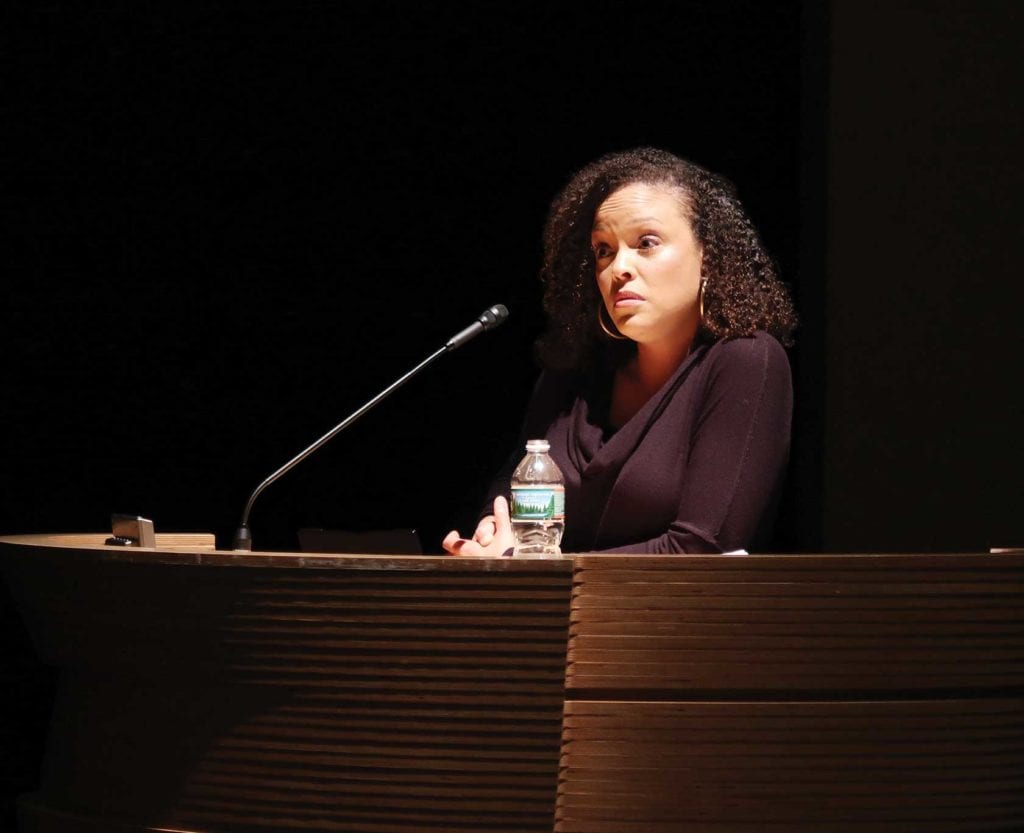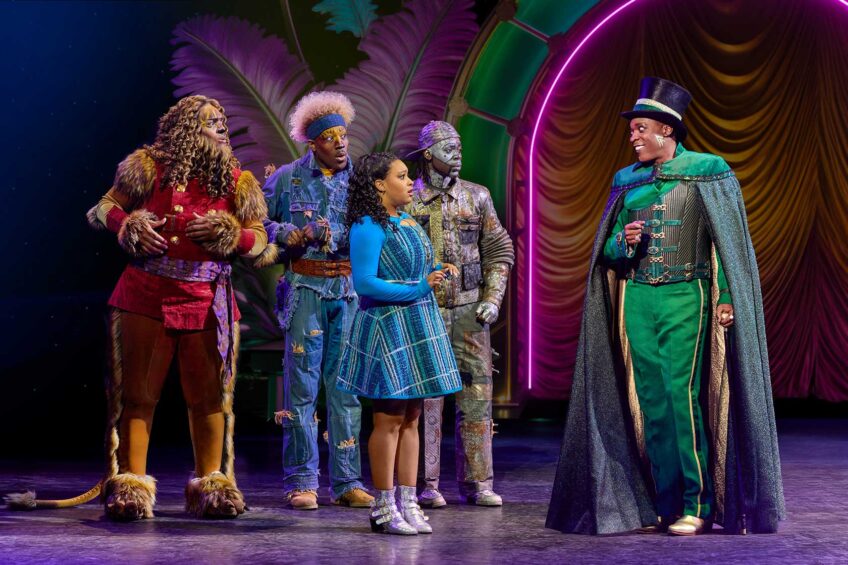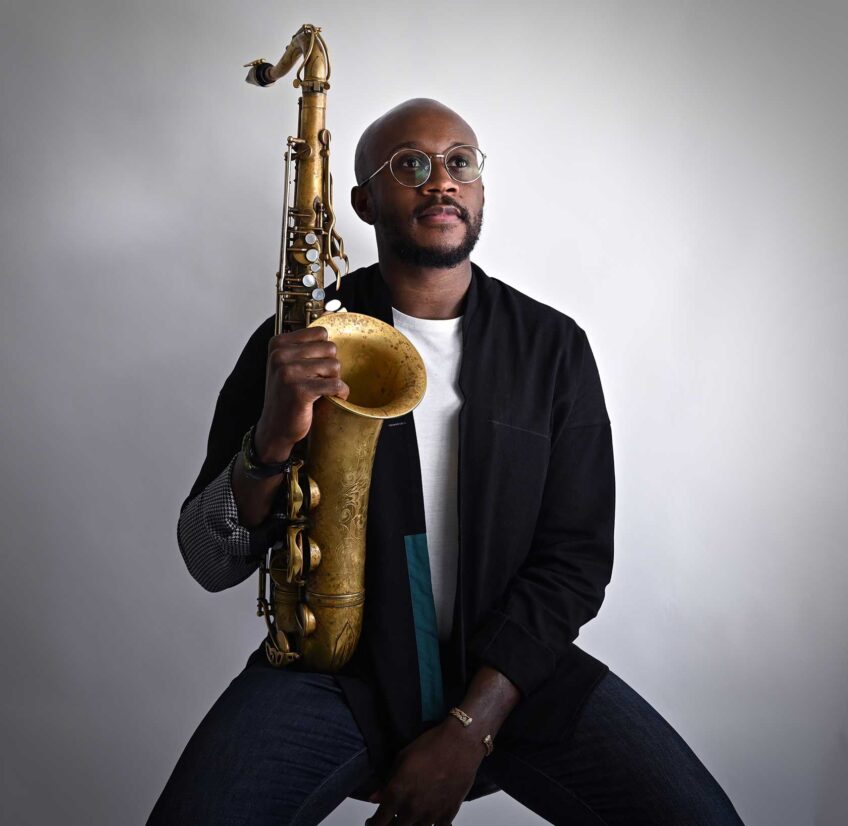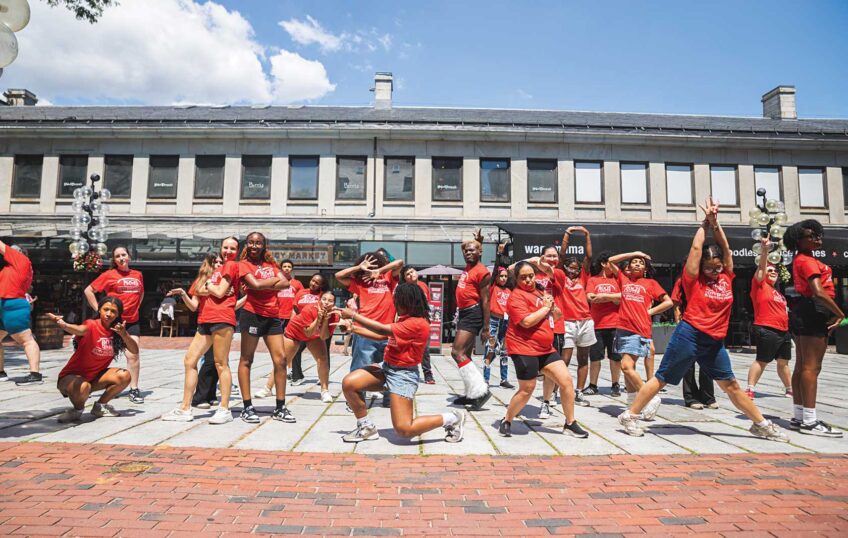
Small and soft-spoken, author Jesmyn Ward delivered a lecture that was both searing and tender on April 10 at the Museum of Fine Arts Boston. True to its title, “Bearing Hope: The Stories We Tell Our Children to Survive,” her talk, one of this year’s Ruth and Carl J. Shapiro Celebrity Lectures, which presents innovators in the arts, reflected on her intertwined endeavors as a story teller and mother.
A 2017 MacArthur Fellow and recipient of its $625,000 “Genius Grant,” Ward is the first woman and first person of color to win two National Book Awards for Fiction—her first in 2011 for “Salvage the Bones” and the second in 2017 for “Sing Unburied, Sing.”
Addressing a full auditorium, Ward, 42, began with a greeting that evoked her hometown, DeLisle, Mississippi, a few miles inland from the Gulf Coast. “Thank y’all for coming,” she said with a southern lilt, “thank you for spending time with me this evening.”
At the MFA, her reflections mingled observations about her writing with her experience as a mother of black children in a society that puts their very lives let alone their development under threat.
Describing herself as “an anxious writer” who casts about for her next subject while working on a current project, she spoke of being increasingly drawn to magical realism, a technique demonstrated with mastery by Toni Morrison in her 1988 novel “Beloved.”
Ward allows characters to emerge and say, “I have a story to tell.” One such figure is Jojo, the 13-year-old narrator in “Sing, Unburied, Sing,” who develops a bond with a ghost, Richie, a young boy who died at the same prison that Jojo, his toddler sister, and his mother, an addict, visit to pick up her husband, who has finished serving time.
“He’s a damaged child who tries to be tough,” said Ward, adding that in this country, “black children are made to bear burdens they shouldn’t have to bear.”
Their parents also bear a heavy burden, implied Ward, who spoke of her apprehension after the birth of her second child, a son, now one year old. Invoking a litany of slain black youth by name, she told the audience that her younger brother died 19 years ago, killed by a drunk driver.
Already considering how to prepare her son for dangers and injustices likely to come his way as a young black male, Ward said, with a touch of humor, “I have eight years to figure out how to tell him.”
Yet in her novels and nonfiction, Ward has already honed a vein of storytelling that chronicles resilience and growth as well as loss and injustice—including her own. In Ward’s 2013 memoir, “Men We Reaped,” she writes about five young black men, including her brother, who died in her hometown within a four-year span of her life.
In her novel “Salvage the Bones,” the 14-year-old female narrator and her siblings help each other endure before, during and after Hurricane Katrina destroys their hometown.
As a girl, Ward found solace and strength in stories. She cited such favorites as “The Secret Garden” and “Pippi Longstocking,” and later, “To Kill a Mockingbird” and “Go Tell It on the Mountain.” “I learned that it’s OK to be scared,” said Ward, “and saw the power of story telling to teach us how things are, how things feel, and how to survive.”
Such power, said Ward, comes from “true, hard stories” that neither censor nor sanitize, but instead, “enable us to feel tenderly toward each other, become real for each other, and bring us together in the telling.”
Ward often spoke with a poetic cadence, and she concluded her talk by saying, “I hope my children will bury me.”
After a pause, she added, “I hope. I hope. I hope.”
Ward then conducted an extended conversation with the audience. An associate professor of English at Tulane University, Ward gave each question the rapt attention of a charismatic teacher. She responded with long and thoughtful replies—each a soliloquy on the transforming power of true, hard stories.






